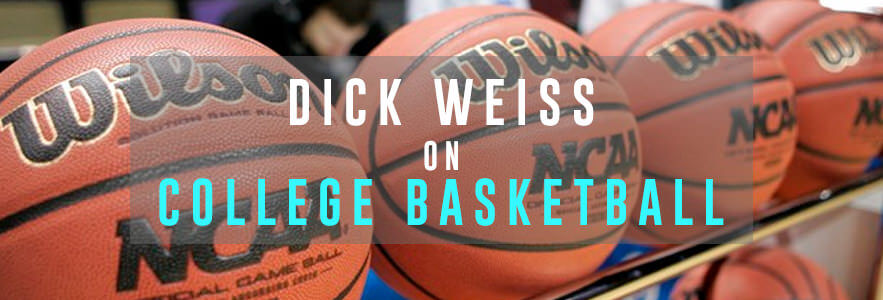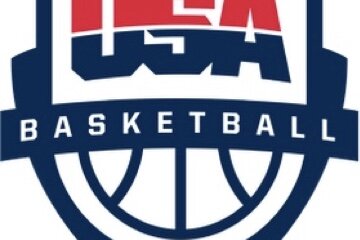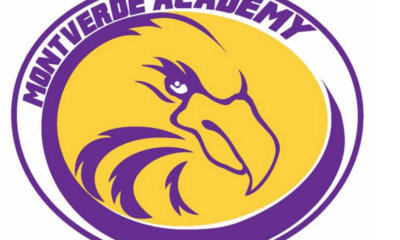
Dick Weiss on College Basketball
The Commission on College Basketball directed the NCAA to take control of the sport, calling for sweeping reforms to separate pro and college tracks, permit players to return to school if they go undrafted by the NBA and ban cheating coaches for life.
The independent commission, chaired by former Secretary of State Condoleezza Rice, released a detailed 60- page report seven months after the group was formed as a response to the federal investigation that rocked college basketball. Ten people, including some assistant coaches, have been charged in a bribery and kickback scheme and high-profile programs like Louisville, Arizona and Kansas have been tied to possible NCAA violations.
Rice said bluntly the state of the game is not very strong. She’s right.
But?
The commission has some interesting ideas, but it is not yet clear how the NCAA will pay for them and some of the recommendations would require cooperation from the NBA, its’s Players Association and USA Basketball.
The commission took dead aim at inept NCAA enforcement as well as the summer basketball circuit that includes high powered travel leagues and brings together agents, apparel companies and coaches looking to profit on teenager blue chip prospects. The group recommended the NCAA have more involvement with players before they enter college and less involvement with enforcement. But it also defended the NCAA’s amateurism model, saying paying players wasn’t the answer. “The goal shouldn’t be to turn college basketball into another professional league,’’ she said.
The report in fact never mentioned the commercialization of college basketball, which is a multi-million-dollar industry in which coaches and schools make millions from shoe companies. According to ESPN analyst Jay Bilas, a lawyer, paying players—or providing them anything more than a cost of living stipend and an education is cast by the report as “morally wrong.’’
‘The Rice Commission doubled-down on this idea that there is something called the college amateur model, and there isn’t one.’’
Rice was scheduled to present the commission’s report to the NCAA Board of Governors and Division I Board of Directors Wednesday. NCAA President Mark Emmert said he wants reforms in place by August. Let’s see how many receive approval.
The commission, acting on its own with any input from the NCAA, addressed five specific areas—NBA draft rules, including the age limit for one and done players; the relationship between players and agents; non-scholastic basketball, involvement of apparel companies with coaches, players and schools; and NCAA enforcement.
The commission emphasized the need for elite players to have more options when choosing between college and professional basketball and called for the NBA and the Players Association to change rules requiring players to at least 19 years old and a year removed from graduating high school before entering the draft. The commission did say if the NBA and Players Association refuse, to change their rules for the 2019 season, it would reconvene and consider other options for the NCAA, such as making freshman ineligible or locking down scholarship for 3 or 4 years if the recipient leaves after one year.
The commission decided against attempting to mirror the rules for baseball in which the major leagues can draft a player out of high school but once he enrolls in college, he must stay until after his third year. The commission did recommend players be allowed to test the professional market in high school or after any college season, while maintaining college eligibility. If undrafted, a college player would remain eligible if he gets an evaluation from the NBA and returns to the same school.
The commission recommended harsher penalties for rule-breakers, recommending the NCAA hired independent entities to investigate high stakes cases. Level I violations would be punishable with up to a five-year postseason an and forfeiture of all post season revenue for the time of the ban, a punishable that could cost offending schools tens of millions of dollars.
And here’s the big one.
Instead of show cause order, which are meant to limit a coaches’ ability to work in college spots after breaking NCAA rules, the report called for lifetime bans. The commission also said coaches and administrators should be contractually obligated to comply with NCAA investigations.
The commission proposed the NCAA create a program for certifying agents and make them accessible to players from high schools through their college careers.
The NCAA, with the support from the NBA and USA Basketball, should run its own centerpiece summer events for prospects take a more serious approach to certifying events it does not control and possibly making them the only events college coaches can attend. The NCAA should require greater transparency of the finances of what it called non-scholastic basketball events and ban its coaches from attending those that do not comply with more stringent vetting. Such a ban could wipe out travel team events that have flourished in showing future talent.
The commission also called for greater financial transparency from shoe and apparel companies such as Nike, Under Armour and Adidas. The companies have extensive financial relationships with colleges and coaches worth hundreds of millions of dollars. The commission also called out university presidents for turning a blind eye to infractions, saying the presidents should be required to certify annually that they have conducted due diligence and that their athletic programs comply with NCAA rules.
The commission recommended the NCAA Board of Governors, currently comprised of 16 presidents and chancellors include five public members with full voting privileges who are not currently employed as university leaders.
Finally, the commission admonished those without college sports who use the NCAA as a scapegoat for the problems in basketball, saying universities and individuals are accountable for keeping the game clean.
It should be interesting to see how much of these proposals become reality. Some should. But there are an awful lot of agendas out there and an awful lot of money is being funneled to the schools from the apparel companies. How much say should the NCAA have with high school players? Can USA Basketball, which is sponsored by Nike, pay for summer evaluation camps on its own? Will the Players’ Association agree to players entering the league directly out of high school? Should agents, some who have paid high school prospects in the past, be allowed to interact with college players? Banning coaches from attending non-scholastic camps to create a monopoly for elite NBA, NCAA and USA Basketball sponsored camps that service a limited amount of prospects and have already been proven illegal in court. Does anyone think the NCAA would really make freshman ineligible to participate?
And by the way, what about football, which is much more corrupt and unaddressed than college basketball at its highest level?
The genie is also out of the bottle, folks.
Dick Weiss is a sportswriter and columnist who has covered college football and college and professional basketball for the Philadelphia Daily News and the New York Daily News. He has received the Curt Gowdy Award from the Naismith Basketball Hall of Fame and is a member of the national Sportswriters Hall of Fame. He has also co-written several books with Rick Pitino, John Calipari, Dick Vitale and authored a tribute book on Duke coach Mike Krzyzewski.





